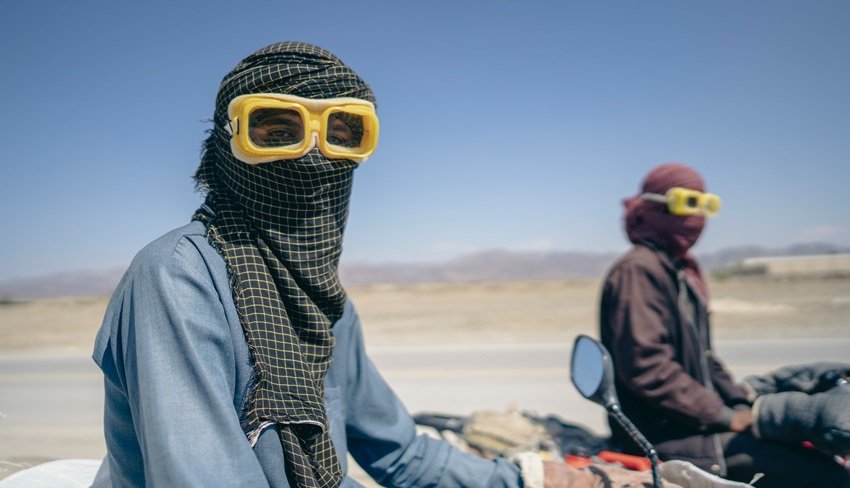The World Photography Organisation is delighted to reveal the finalists and shortlisted photographers in the Sony World Photography Awards 2024 Professional competition. Now in its 17th year, the Awards’ Professional competition rewards an exceptional series of work both for technical mastery and an original approach to narrative.
Over 395,000 images from more than 220 countries and territories were submitted to the Sony World Photography Awards 2024, with the highest number of entries on record for the Professional competition.
The winner of the Photographer of the Year 2024 is chosen from the Professional finalists and announced on 18 April. The Photographer of the Year wins a $25,000 (USD) cash prize and a range of Sony digital imaging equipment and additionally receives a solo presentation of their work as part of next year’s Sony World Photography Awards exhibition. This opportunity allows photographers to further develop their winning projects or exhibit new work, gaining them additional exposure and advancing their careers.
A selection of images by finalists and shortlisted photographers is first showcased as part of the Sony World Photography Awards 2024 exhibition at Somerset House from 19 April-6 May 2024, and will then travel to additional locations.
Commenting on behalf of the jury, Chair of the Jury, Monica Allende says: ‘The jury was captivated by the passionate storytelling; capturing both the joys and the challenges of human existence across our planet. We were thrilled by the diverse, high-quality, and creative spectrum of photography styles on display.’
The three finalists and projects per category of the Sony World Photography Awards 2024 Professional competition are:

Yaser Mohamad Khani, Iran, Finalist, Professional, Architecture & Design, Sony World Photography Awards 2024.jpg
ARCHITECTURE & DESIGN
In Sala Mayor (Living Room), Siobhán Doran (Ireland) documents the homes of families who acquired wealth in the sugar trade in the Philippines, through a series of portraits of their main living rooms. In Tehran Campus Town, Yaser Mohamad Khani (Islamic Republic of Iran) explores the new neighbourhoods being built on the outskirts of Tehran in a series of striking photographs of urban development within the rocky, mountainous landscape. Meanwhile, Karol Pałka’s (Poland) project Spa Island looks at how spa facilities are embedded in community life in Slovakia as spaces for meeting and interaction.
CREATIVE
Tine Poppe’s (Norway) series Gilded Lilies: Portraits of Cut Flowers considers the damaging environmental impact of cut flowers, through carefully crafted images of bouquets against backdrops of landscapes devastated by climate change. In Sujata Setia’s (United Kingdom) project A Thousand Cuts she examines the pain and resilience of survivors of domestic abuse from the UK’s South Asian community, through a series of intricately crafted portraits with incisions in the surface of the photographs, revealing a layer of red paper underneath.
DOCUMENTARY PROJECTS
In Critical Minerals – Geography of Energy Davide Monteleone (Italy) investigates the mining of minerals needed for renewable energy, looking closely at the gruelling human toll of cobalt extraction in the Democratic Republic of Congo. In Spiralkampagnen: Forced Contraception and Unintended Sterilisation of Greenlandic Women Juliette Pavy (France) explores the lasting impact of the birth control campaign led by Danish authorities in Greenland between 1966 and 1975, during which thousands of young Greenlandic women were implanted with intrauterine devices without their consent, in many cases leading to their sterilisation.

Sujata Setia, United Kingdom, Finalist, Professional competition, Creative, Sony World Photography Awards 2024
ENVIRONMENT
Mahé Elipe’s (France) Echoes of the Hive documents the efforts of the Mayan population in Southern Mexico to preserve a species of bees central to their religion and culture in the aftermath of their mass-poisoning by pesticides. Jean-Marc Caimi and Valentina Piccinni’s (Italy) series Tropicalia examines how Sicily has adapted to its changing climate and rising temperatures, focusing on the new agricultural practices pioneered by local farmers and scientists as they begin to grow more tropical fruits. Using the UN Sustainable Development Goal to eradicate hunger as a starting point, Maurizio Di Pietro (Italy) looks at the promotion of insects as a food source in the series Zero Hunger.
LANDSCAPE
In Wildfires of Palermo Jim Fenwick (United Kingdom) captures the extraordinary tones of Palermo’s skies lit up by raging wildfires in the Sicilian countryside. Eddo Hartmann’s (Netherlands) series The Sacrifice Zone explores a remote area of Kazakhstan that was once the site of the Soviet Union’s major nuclear testing facilities, using infrared to evoke the impact of the radiation contamination invisible to the human eye. In An Atypical Chinese Landscape Fan Li (China Mainland) depicts an enigmatic, sparse landscape populated by abandoned objects and constructions. These discarded fragments are suggestive of unknown past lives, leaving behind permanent marks on the landscape.
PORTFOLIO
In Aly Hazzaa’s (Egypt) Quest for Coherence, the photographer’s eye for detail and playful approach to street photography catches witty visual moments in the streets of Cairo. Angelika Kollin’s (Estonia) series Parenthood examines the concept of the family as the nucleus of life, through a series of black and white portraits of parents and their children. In Jorge Mónaco’s (Argentina) Portraits and Landscapes the photographer invites the viewer to delve into the intimate stories of his subjects, offering a reflective perspective on human diversity.
PORTRAITURE
Following extensive archival research and working with genealogists to trace his sitters, Drew Gardner’s (United Kingdom) series Descendants of Black American Civil War Combatants recreates photographs of Black American Civil War combatants through posed portraits of their descendants. In Valery Poshtarov’s (Bulgaria) Father and Son the photographer asked fathers and sons from Bulgaria, Georgia, Turkey, Armenia, Serbia, and Greece to hold hands. This small but important act of familial tenderness creates an intimate and moving portrait of masculinity and paternal relationships. In The First Car Adali Schell (United States) portrays his friends in their first cars, evoking the sense of a shared journey, half-forgotten memories, and the feeling of youthful restlessness growing up in L.A.
SPORT
In Finger Wrestling in Bavaria Angelika Jakob (Germany) spotlights the lesser known sport of finger wrestling. Exuding humour and warmth, Jakob’s images depict the intensive training process using finger weights and the riotous atmosphere of the championships. In Thomas Meurot’s (France) Kald Sòl (Cold Sun), we follow a cold surfing expedition in Iceland, with the black and white format used to emphasise the freezing temperatures which persisted even in the glaring winter sun. Meanwhile, Tommaso Pardini’s (Italy) Surf in Dakar looks at the burgeoning Senegalese surf scene through the journey of a promising young surfer aspiring to compete on the international stage.

Mojtaba Radmanesh, Iran, Shortlist, Professional competition, Portfolio, Sony World Photography Awards 2024 .jpg
STILL LIFE
In Peter Franck’s (Germany) Still Like Art, the photographer captures a series of strange and surreal compositions and still lifes, shot in stark black and white. In London Plane Tree, Beth Galton (United States) considers the peeling back of layers of our identity through photographing strips of tree bark overlaid on self-portraits. Federico Scarchilli’s (Italy) series Flora highlights the vital role of plants in medicine, juxtaposing photographs of key species that have been instrumental in the development of modern medicine, with neat rows of pills laid out symmetrically.
WILDLIFE & NATURE
Eva Berler’s (Greece) Suspended Worlds invites the viewer to take a closer look into the world of spider webs, where time and action are frozen, capturing the artful, irregular intricacies of these ephemeral creations. In Jasper Doest’s (Netherlands) In the Footsteps of Giants the photographer reveals the delicate equilibrium between humans and elephants in rural parts of Zambia, an uneasy truce which is increasingly disturbed as both populations vie for limited resources. In King Without a Throne: Poached or Dehorned, photographer Haider Khan (India) documents two rhinos in captivity in Germany and India. The series explores the complexities of ‘dehorning’ which, while helping to keep rhinos safe from poachers, conversely leaves them vulnerable without their natural defence system.
The work of finalist and shortlisted photographers in the Professional competition was judged by: Elena Navarro, Photo Curator, Producer, and Consultant, Mexico; Mutsuko Ota, Editorial Director, IMA Magazine, Japan; Elisabeth Sherman, Senior Curator, Director of Exhibitions and Collections, International Center of Photography (ICP), United States; Tanzim Wahab, Curator, Spore Initiative, Germany and Festival Director, Chobi Mela, Bangladesh; and Monica Allende, Independent Curator, Photography Consultant and Chair of the Jury.






